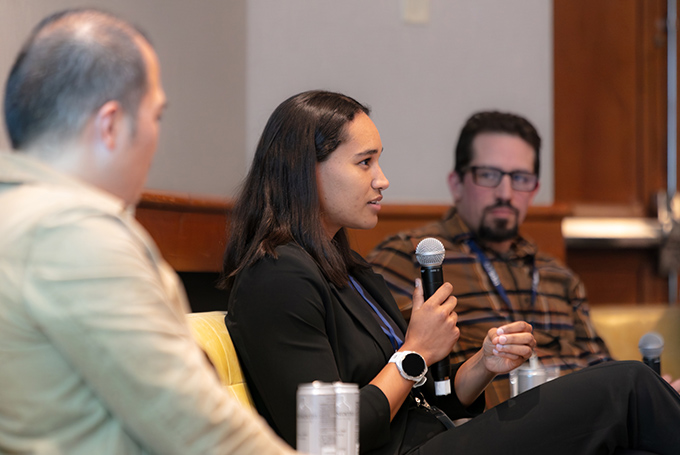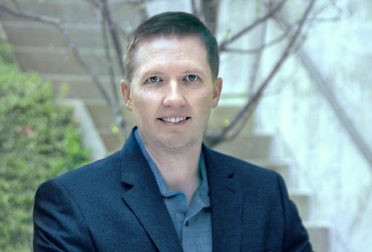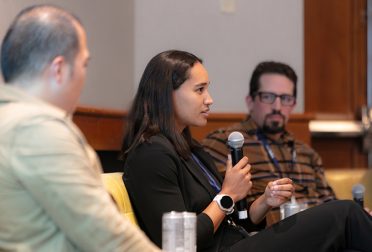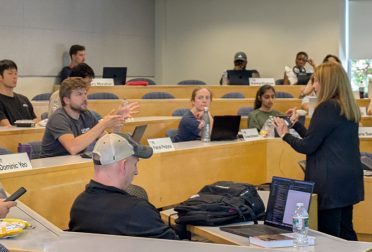By George Wenzel, SDM ’25
SDM held its annual Systems Night on November 6, 2025. The event brings together SDM students, alumni, faculty, and local industry leaders, to reflect on how systems thinking has affected their careers and the impact they create. This year’s event featured a panel of SDMers working in the startup world.
Tim Chiang SDM ’16, partner and co-founder at Myriad Venture Partners, shared advice for aspiring entrepreneurs on shaping ventures to attract investors—emphasizing that success ultimately depends on people. Noemie Midrez SDM ’22, technical program manager at Nth Cycle, discussed the importance of communication and human interaction in fast-paced startup environments such as Nth Cycle’s work refining critical metals through electroextraction technology. Jeremy Katz SDM ’08, vice president of engineering for code security at Sonar, drew on his experience in multiple software startups to share his perspective as a hands-on leader navigating all stages of product development.
When the panelists were asked how they applied what they learned during their time at SDM. Jeremy replied with an analogy. “Before deciding how much energy to invest in something, I ask myself—is this a hat, a haircut, or a tattoo?” he said. “If it’s a hat, I can wear it and take it off easily, so I can decide quickly and roll back if necessary. If it’s a haircut, I should think more carefully—it takes time to grow back. But if it’s a tattoo, I’d better be sure, because I’ll have to live with it.”
Noemie highlighted how she applies systems thinking not only to anticipate business needs while wearing different hats at work but also to balance that effectiveness with quality time for family and friends. Tim, meanwhile, described how he views startups as people systems. For him, self-awareness and humility in founders matter even more than the idea or product itself. Startups constantly face high risk, and the ability to learn, listen, and surround oneself with experienced people is key to survival. He also stressed the value of domain knowledge—something SDM encourages through its flexible curriculum.
Toward the end of the discussion, Jeremy emphasized the importance of understanding how others perceive systems when hiring for small startup teams. One of his favorite interview questions was to ask candidates how they would design a well-known app like Shazam. And on a new employee’s first day, he would challenge them to build and deploy something from scratch to gauge their product-development mindset.
Three key words echoed throughout the conversation: people, process, and product—the essence of the SDM program. People form the core of any organization, and their self-awareness, collaboration, and resilience ultimately determine success.
The night closed with lively conversations that reflected the enduring strength of the SDM community and its commitment to forming the systems leaders of tomorrow.




